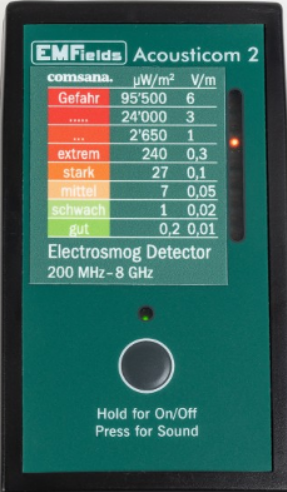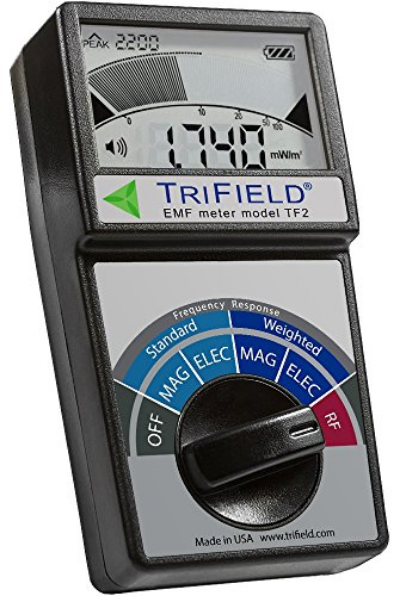I want to find a proper device to measure 5G Extreme High Frequencies
I have been suggested to buy the HF-ANALYSER HF38B.
I am not an expert in this sort of devices but it is mention that the top peak read the this analyser can measure is 2.7Ghz while the standard 5G Broadband expected in my town is 26Ghz which it makes it 10 times higher.
Can anyone please advise a suitable device for 5G Frequencies measurement.
Kind regards
Alejandro












It looks like 5G is rolling out and utilizing a wide range of frequencies. Some of those frequencies are 12 Ghz and below. For this we are recommending the Safe and Sound Pro 2 Meter.
Another good alternative to that meter would be the Acoustimeter AM10. However, the AM10 does not have as wide of a frequency range. Its specs only go up to 8 Ghz whereare the Safe and Sound Pro 2 goes up to 12 Ghz.
Neither of these meters will cover *all* 5G (5th Generation - not to be confused with 5Ghz - 5G does NOT stand for gigahertz) frequencies. They will cover some, and likely be able to show you when 5G is present. But these meters may not be able to actually measure all of the frequencies emitted by 5G antenna systems.